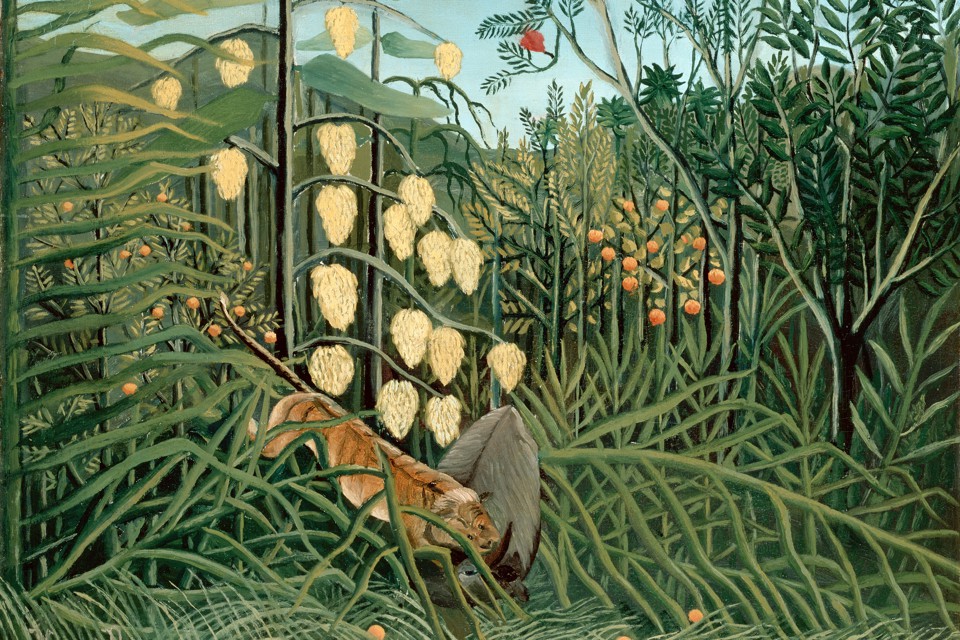via Boing Boing by Andrea James

A new film about artist Chris Burden comes out this year, which is the perfect reason to revisit one of his coolest later works: Metropolis II, filmed here by Henry Joost & Ariel Schulman.
Continue reading
=============================
via Interesting Literature
The best sun poems
Previously, we’ve offered up some classic summer poems, but in this post we’re specifically interested in classic poems about the sun, that wonderful ball of hydrogen and helium that makes life on Earth possible and allows us to get a decent suntan for six days of the year. Each of the ten following poems describes or uses the sun in some way – sometimes to explore other themes, sometimes simply to praise the sun for its warmth and light.
Continue reading
=============================
via the New Statesman by Hannah Rose Woods
All the reasons why you don’t want to go to Hogwarts.
Like most nineties kids, I was quietly devastated not to receive an owl on my eleventh birthday. Not getting an acceptance letter from Hogwarts was one of the great tragedies of my young life. Two decades later, no matter how many BuzzFeed quizzes I take revealing I’m a Gryffindor in the streets and a Slytherin in the sheets, I can’t honestly say that I’ve 100% come to terms with being a muggle.
Continue reading
=============================
via Big Think by Scotty Hendricks
Greece, the land that created Western civilization. The home of more philosophers, playwrights, and producers of knowledge then anybody can remember. The foundations of the modern Western world can be traced back to that collection of bickering city states and their varied systems of thought. If any nation can claim to be the most influential in history, Greece has a strong argument to make.
But, how could a small area on the rocky shores of the Mediterranean do this? After all, look at it now. What has it done for us lately?
Continue reading
=============================
via Boing Boing by Cory Doctorow
Lots of languages are hybridized from multiple, overlapping waves of conquerors, “but English’s hybridity is high on the scale compared with most European languages”, which gives us a realm of weird pronunciations, weirder spellings, inconsistent grammar, and a near-unique situation whereby speakers of languages that are close cousins to English can more-or-less understand English, too.
Continue reading
=============================
via Interesting Literature
The curious meaning of a classic story

Johnny Gruelle illustration of Rapunzel from Project Gutenberg (public domain), via Wikimedia Commons.
One central feature of the story of ‘Rapunzel’ is well-known: the beautiful blonde woman, imprisoned in a tower, who lets down her long hair for her lover. But what does the story of ‘Rapunzel’ mean? And how does the meaning of the very name ‘Rapunzel’ offer a clue? In this post, the latest in our occasional series discussing the meanings and origins of classic fairy stories, we offer a short summary and analysis of ‘Rapunzel’. Although the version told by the Brothers Grimm was first published in 1812, it was based on a seventeenth-century story, and the actual tale may be older still. It’s still with us: the 2010 Disney film Tangled is based on the Rapunzel story.
Continue reading
=============================
via Red Ferret by Donyae Coles
Air pollution is a real bummer and causes a lot of problems for our planet. Even if we lower the output of CO2 in the air, we still need to do something with the pollution we already have The Direct Air Capture plant turns all that nasty stuff into plant fertilizer.
These plants pull the air through a filter system, which cleans the toxins from it and delivers cleaner air out the other side. Every few hours, the filters are changed and the dirty ones can be used in a local greenhouse to grow veggies. The extra CO2 gives them a growing boost.
Of course, this innovation will only take care of a fraction of the pollution that the world is faced with and is not a substitution for more long-term methods of reducing emissions. In fact, although each factory can remove 900 metric tonnes of CO2, this is only a small, small amount of pollution, especially compared to what we produce in currently.
Continue reading
=============================
Peter Wohlleben’s book has become bestseller in Germany but he tells Hay festival audience it has annoyed scientists
via the Guardian by Mark Brown Arts correspondent
Trees are social creatures that mother their young, talk to each other, experience pain, remember things and have sex with each other, a bestselling author has said.
If that persuades you to go and hug the nearest tree, then great, said Peter Wohlleben. Just avoid a birch: “It is not very sociable. Try a beech.”
Wohlleben was at the Hay literary festival in Wales to talk about a book, The Hidden Life of Trees, which has become a bestseller in his native Germany and, remarkably, prompted an online petition against it from scientists.
Continue reading
=============================
via 3 Quarks Daily: Sarah Zhang in The Atlantic

'In a Tropical Forest' by Henri Rousseau
The modern world gives us such ready access to nachos and ice cream that it’s easy to forget: Humans bodies require a ridiculous and – for most of Earth’s history – improbable amount of energy to stay alive.
Continue reading
=============================
How do you know the Earth isn’t flat?
via Boing Boing by David Pescovitz

It sure feels flat, right? (Life Noggin)
via Boing Boing by David Pescovitz

It sure feels flat, right? (Life Noggin)
No comments:
Post a Comment